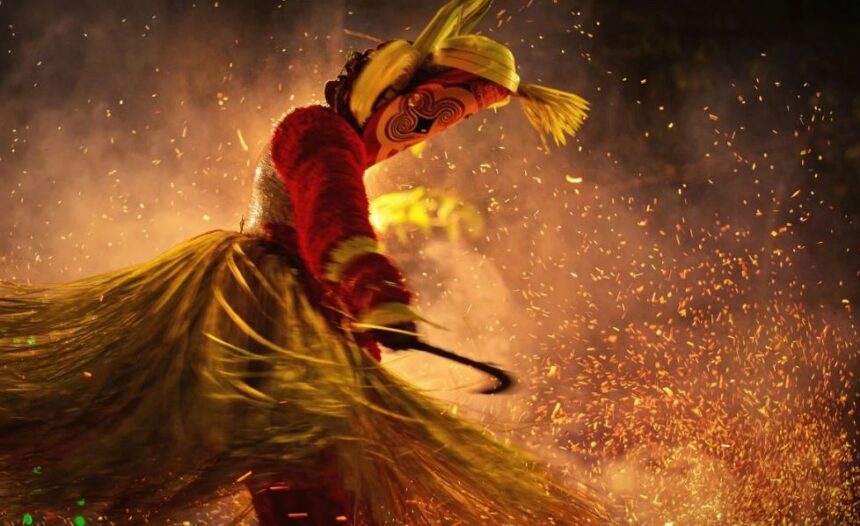A Childhood Memory and the Spark of Curiosity
When I was ten years old, my grandfather would sit by the fireplace, telling stories that seemed to carry the weight of centuries. He spoke of far-off villages, unique traditions, and people with tales unlike anything in our modern world. One evening, he mentioned a mysterious term — lingionner — a word I didn’t understand but couldn’t forget.
As the years passed, I never heard that word again, not in books, not in school. But it lingered. It wasn’t until much later in life, while diving into cultural history and forgotten languages, that I rediscovered it. That curiosity opened a door to a fascinating topic, rich in meaning and cultural significance. In this article, we’re diving into what lingionner is, why it matters, and how it reflects deeper human connections to heritage and communication.
What is Lingionner?
A term rooted in mystery and meaning
The word lingionner doesn’t appear in most mainstream dictionaries, which adds to its intrigue. While some believe it’s a linguistic blend derived from historical dialects, others associate it with regional naming customs or cultural practices passed down through generations.
It might describe a group of people, a local tradition, or even an obscure profession. But more than that, lingionner evokes the importance of preserving identity in the face of change — something many of us relate to in a fast-paced digital age.
What does lingionner mean?
Lingionner refers to a culturally significant term, often tied to regional traditions, historical linguistics, or community identity. Its meaning varies depending on context but is usually associated with heritage and forgotten knowledge.
The Cultural Significance of Lingionner
Why language and tradition matter
Language is more than communication; it’s the soul of culture. Every phrase, every idiom, tells a story of who we are and where we come from. Lingionner represents a piece of that puzzle, a bridge between past and present.
When communities hold onto terms like this, they are preserving more than words — they’re preserving their stories, worldviews, and values. Just as the word itself may be elusive, so too is the heritage it tries to protect.
Lingionner in modern context
Today, interest in endangered languages and forgotten customs is rising. Younger generations are looking to reconnect with their roots, and researchers are exploring words like lingionner to better understand cultural landscapes.
In linguistic studies, such terms offer insight into how societies evolve, merge, or resist external influence. While lingionner isn’t found in common discourse, its cultural echoes live on in oral traditions and local knowledge.
Community, Identity, and the Power of Words
How small words carry big meanings
Think about the words your family uses that outsiders don’t understand. These words build a kind of secret code — a reflection of shared experiences and understanding. Lingionner fits right into this framework.
It might have once been a profession, a title, or even a nickname. But no matter the origin, it’s clear that it played a role in strengthening community bonds. These are the terms that live in memory even when formal records forget them.
From oral history to digital archives
Thanks to the internet and passionate researchers, many of these lost terms are being revived. Wikipedia, for example, has become a central resource for documenting obscure cultural and linguistic elements. You can read more about cultural linguistics and endangered dialects on Wikipedia’s Linguistics page.
With crowdsourced information and scholarly research combined, we are beginning to appreciate the value of every forgotten word.
Why Should We Care About Lingionner?
It’s about connection and continuity
In a world obsessed with the new, there’s something comforting about the old — especially when it connects us to who we are. Exploring terms like lingionner isn’t just about learning definitions; it’s about honoring the people who came before us.
It’s also a reminder that language doesn’t have to be globally recognized to be meaningful. For many, preserving one small word can feel like holding onto an entire world.
Reviving interest in heritage
Museums, archives, and universities are increasingly turning to community-driven projects to preserve forgotten knowledge. Words like lingionner might appear in oral interviews, ancestral records, or even in folk songs.
When brought into the light, they offer not just insight but a revival of identity for communities that feel left behind by mainstream history.
Lingionner as a Symbol of Lost Knowledge
Modern research meets ancient roots
With the support of digital tools and cultural historians, terms like lingionner are being revisited. What once seemed like a forgotten phrase now sparks academic papers, cultural blogs, and local exhibitions.
It shows us that every word matters, especially those tied to culture, profession, or identity. And even if the exact meaning remains debated, the journey of discovering it is valuable in itself.
A link to ancient ways of life
Many such terms are closely tied to occupations, rituals, or community roles that no longer exist. Lingionner could have once described a storyteller, a village guardian, or a tradesperson with a unique craft.
Reading about ancient social roles, you’ll find more connections to terms like this on Wikipedia’s page on Historical Occupations. It’s incredible how one word can open the door to centuries of tradition.
Conclusion:
Rediscovering the term lingionner is about more than linguistic curiosity — it’s a journey through time, identity, and culture. Whether it refers to a person, a practice, or a profession, its roots go deep into the human need for connection and storytelling.
As we move forward in a rapidly modernizing world, taking time to remember and preserve forgotten words like lingionner helps us hold onto the richness of our past. These words, no matter how small, shape the way we see ourselves and each other.
So the next time you hear a strange word in a story, don’t brush it off. Lean in, ask about it, and let it guide you on a path of discovery — because every word has a world inside it.





